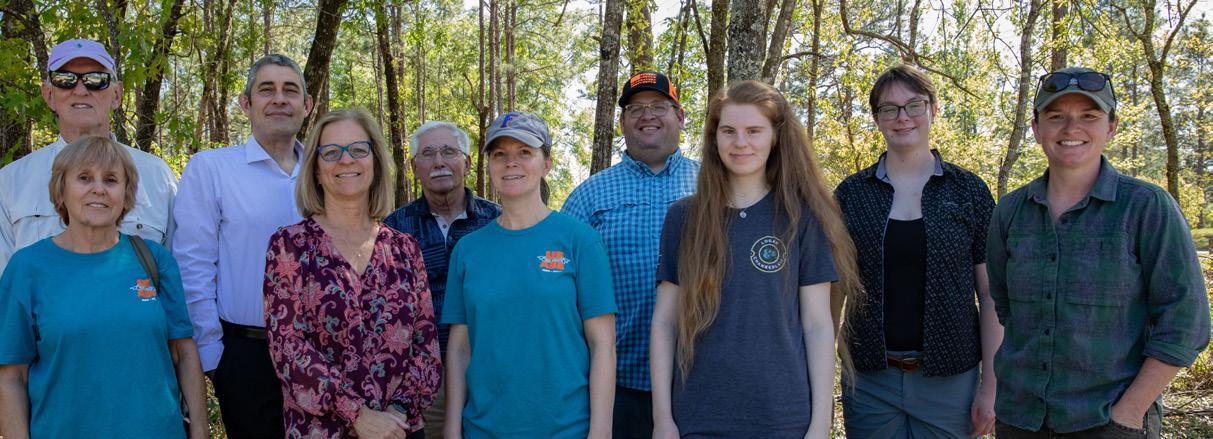ABE UPDATE

A Walk Down Memory Lane


WHERE WE HAVE BEEN AND WHERE WE ARE











WHERE WE HAVE BEEN AND WHERE WE ARE







We have had one of the most action-packed springs ever in ABE at UF. I cannot remember a time when we enjoyed so many events, seminars, and sharing of accomplishments and memories. Of course, this was not by happenstance but in celebration of our centennial birthday! The ABE Department turned 100 years old in 2023.
I have been repeatedly impressed this spring as we reminisced on the last 100 years. This issue highlights some of these events. More information on past and future celebrations for this year can be found on the centennial website (see QR code at bottom of page).

One of the highlights of 2023 has been the sharing of alumni and faculty stories. These stories are posted on the centennial website so others can enjoy! Visit the website to hear more from Direlle Baird, Richard Fluck, Wendell Porter, Ken Boote, and Art Teixeira. These faculty members were trend setters and helped to create the Department we are today. Alumni have also submitted stories, including those from Marcelo Calle, Kyle Chardi, Arturo Confiado, Shawn Crocker, Gaby Cruz, Alex DiCairano, and more! I know you will find their stories inspirational. Even more exciting, it is not too late for you to submit your story as well! Information on how to submit can be found at the top of the ‘Stories’ webpage.

As we were gathering information for the celebration, we also created a list of career paths of our alumni. This information is listed on the centennial website under ‘About our Department’. The wide range of careers and the roles our graduates fill is extraordinary. Our graduates make a difference in the world every day. Companies that hire our graduates include Nestle USA, Kimley-Horn, Amazon, Bayer Crop Science, The Walt Disney Company, PepsiCo, Duke Energy, USDA FSA, and many others.
I also would like to acknowledge our 2023 UF ABE Distinguished Achievement, Service, and Alumni Award winners. Our 2023 awardees include Dr. Ken Stone (USDA ARS), Dr. Paulo Younse (NASA’s Jet Propulsion Laboratory), Dr. Ken Campbell (Emeritus Faculty), Dr. Fedro Zazueta (Emeritus Faculty), Madison Keller (Printpack), and Dr. Alireza Pourreza (UC Davis). More on their awards are provided in this newsletter.
Spending this semester showcasing ABE and the accomplishments of the past 100 years has provided perspective. I am truly grateful to be part of UF ABE. As Wendell Porter said, “This job is the best job in the world.”
Go Gators!
Kati Migliaccio UF/ABE Chair and ProfessorPublic University by U.S. News and World Report
Graduate Biological/ Agricultural Engineering Program by U.S. News and World Report
Undergraduate Biological/ Agricultural Engineering Program by U.S. News and World Report
On January 19, ABE kicked off a yearlong centennial seminar series with a walk down memory lane. Dorota Haman and Fedro Zazueta shared the evolution of ABE with their historical story.
Land grant universities were designated by the state legislature to receive the benefits of the 1862 Morrill act and thus acquired the mission to teach agriculture and mechanical arts. This was followed by the 1887 Hatch Act that created the Agricultural Experiment Station and the 1914 Smith-Lever act that extended the mission to outreach and extension. The visionary creation of this institution set the stage for deep transformation that resulted in the conversion of the US from an agricultural society to an industrial one by the middle of the 20th century.
In 1884 the Florida Agricultural College of Lake City was designated as the state’s land grant college. In 1903 it was moved to Gainesville and renamed The University of Florida. From the early beginnings of the University of Florida, engineering applied to agriculture and natural resources made important contributions to the economy of the state, sustainable practice, and improvements to the quality of life of Florida’s citizens.
The first courses in Agricultural Engineering were taught in 1909 by Prof. Frazier Rogers, after whom the current Hall that hosts UFABE is named after. These courses were taught in the Department of Agronomy until the creation of the Department of Agricultural Engineering in 1923. The teaching of agricultural engineering began with the courses Farm Machinery, Farm Motors, Drainage and Irrigation, Farm Buildings, Farm Concrete and Woodwork and Forgework. These courses were the basis for a ma-
jor in Agricultural Engineering that was offered in 1925 under the Bachelor of Science in Agriculture degree. The department grew slowly, until in 1947 it was given the responsibilities of teaching, research and extension which was followed within a few years with the Bachelor of Agricultural Engineering degree that is awarded by the College of Engineering and the College of Agriculture. Within months the number of faculty tripled to six members and by 1970 the number had grown to 22 members. By the early 1970’s the number of course offerings had expanded to 62, not including electives. With the growth of the department a stronger emphasis on research and outreach resulted in major contributions to the State of Florida that were responsive to the needs of Florida Agriculture.
Early research and extension programs in mechanization, water management, structures and housing, and crop production increased efficiency and removed barriers to sustainable agricultural production in the State. Rapid advances in biology and related sciences were incorporated into the agricultural engineering curriculum. The importance of biology and related sciences to engineering in agriculture was formally incorporated in the teaching, research, and extension programs. This led to changing the name of the department to “Agricultural and Biological Engineering” in 1994.
Since then, the Department rapidly grew in the number of faculty, staff, and students. More importantly was the increase in the scope of related sciences and engineering. Today the Department is consistently amongst the top 5 in the country and continues to make significant contributions at the State, National and International levels.
“We are relevant...that’s why we have existed for this period of time.”
- Dr. Fedro Zazueta
CLOCKWISE FROM TOP LEFT : 1. DR. FEDRO ZAZUETA AND DR. DOROTA HAMAN POSE FOR A PICTURE AFTER PRESENTING AT THE FIRST CENTENNIAL SEMINAR SERIES IN JANUARY. 2. MANY GATHER TO LISTEN TO THE FIRST OF MANY SEMINAR SERIES. IN FOCUS IS DR. DIRELLE BAIRD, A PREVIOUS UF/ABE CHAIR. 3 . UF/ABE FACULTY MEMBER, DR. WON SUK ‘DANIEL’ LEE, AND UF/ABE RETIRED FACULTY DR. WENDELL PORTER CONVERSE BEFORE THE SEMINAR EVENT. 4. UF/ABE RETIRED FACULTY MEMBER AND ADVISORY BOARD MEMBER, DR. DEL BOTTCHER, APPROACHES THE PODIUM TO SPEAK ABOUT HIS TIME WORKING IN THE UF/ABE DEPARTMENT.



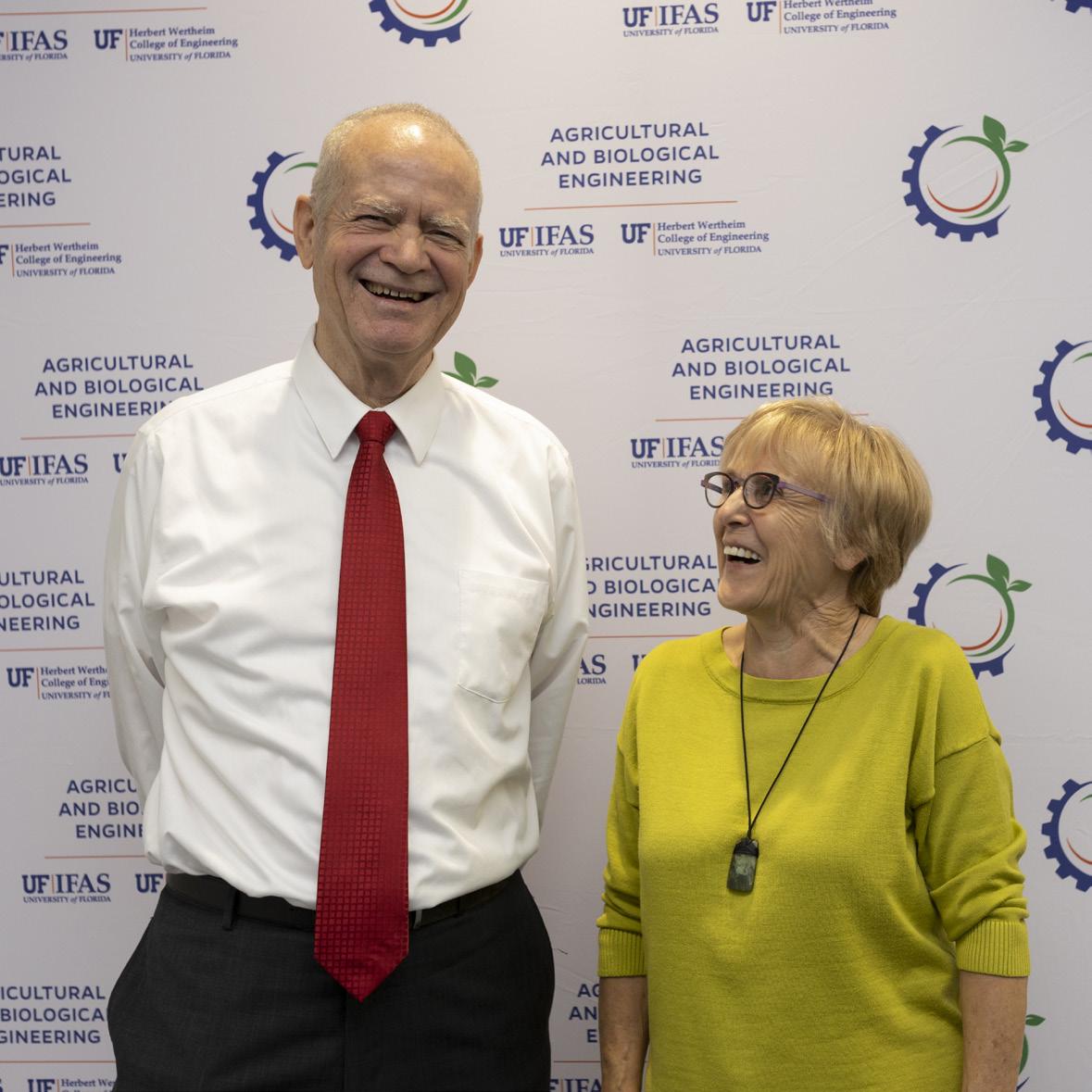


 BY DR. JIM JONES & DR. GERRIT HOOGENBOOM
BY DR. JIM JONES & DR. GERRIT HOOGENBOOM
ABE has been at the forefront of developing crop simulation models since the early 1980s and is considered a global leader. Jim Jones (UF ABE) and Ken Boote (UF Agronomy) developed a relatively simple model for simulating soybean growth and yield (SOYGRO) based on 14 first-order nonlinear differential equations. They coded these equations into the computer using the FORTRAN programming language. Gerrit Hoogenboom then joined Jim and Ken as a Postdoc in the ABE department to contribute to this research. They soon adapted SOYGRO to create PNUTGRO and BEANGRO models for peanut and dry bean, respectively. In the middle 1980s, the US Agency for International Development (US AID) funded the International Benchmark Sites Network for Agrotechnology Transfer (IBSNAT)
Project, which enabled the UF crop modeling team to work with researchers in Hawaii, Texas, and Michigan, the International Fertilizer Development Center, and various countries to combine multiple crop models, enabling each to use the same weather, soil, management, and crop input data files and to produce compatible outputs.
The DSSAT (Decision Support System for Agrotechnology Transfer) started with models for five crops, including maize and wheat developed in Texas, soybean, peanut, and dry bean from Florida, and database tools from cooperators in Hawaii and elsewhere. Thus, DSSAT facilitated collaboration among a large group of interdisciplinary researchers across the globe to contribute by adding new models for different crops, data, and analysis tools.
These collaborations led to DSSAT expanding from five crops to more than 43 now, with user interfaces to adapt the models for their specific purposes, and new crops being added on a regular basis. These crop models use daily weather data, soil surface and profile characteristics, crop management, and genetic information to simulate daily crop growth and development and water, carbon, nitrogen, and phosphorus dynamics in soil and plant modules. Applications include plant breeding and genetics, irrigation management, nitrogen man-
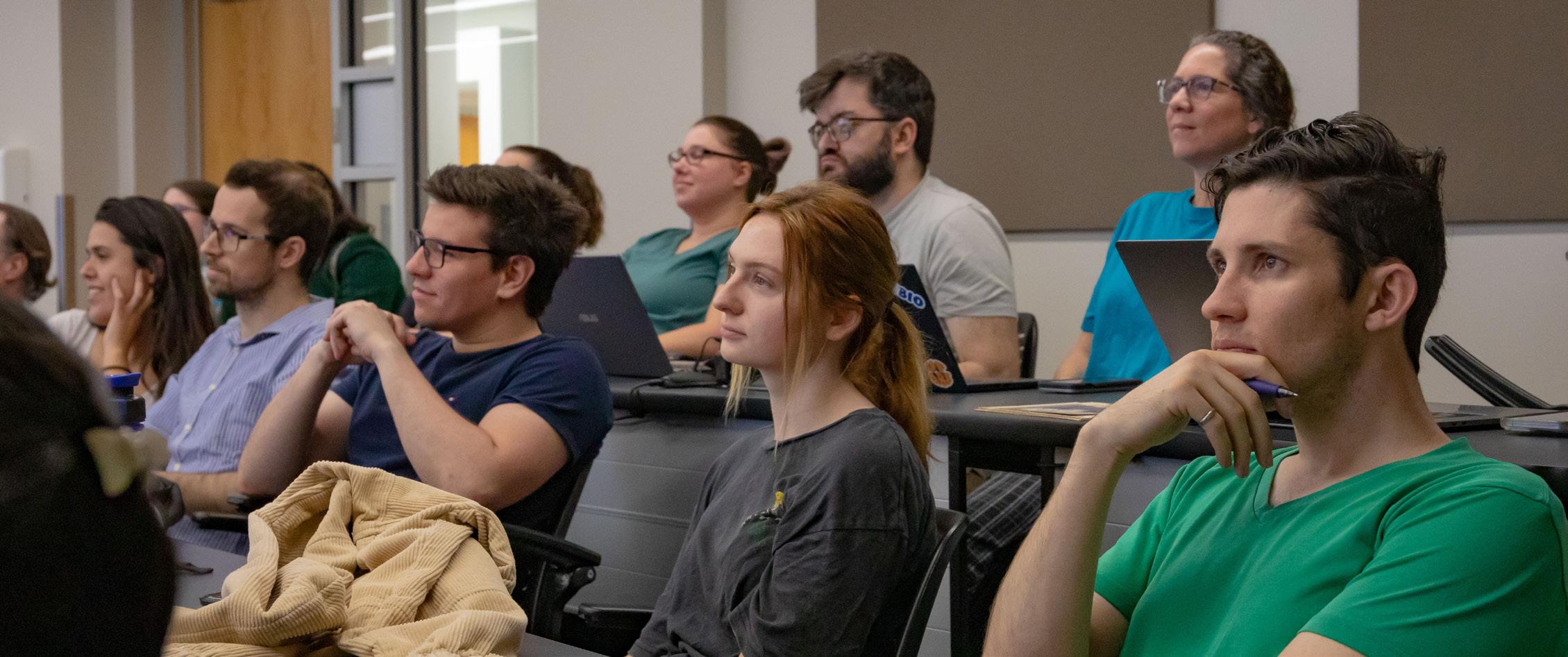
ed by the DSSAT Development Sprints or Hackathons, which are organized bi-annually. ABE also has been a leader in capacity building and teaching crop modeling concepts and applications. Annual DSSAT training workshops have been held since 1985, and many other training workshops are facilitated worldwide by invitation, most recently in Ethiopia, Ghana, Germany, Kazakhstan, South Africa, Thailand, Turkey, and Vietnam. As a result, the DSSAT user community continues to expand, with over 22,500 DSSAT download requests during the
agement, precision agriculture, climate smart management, pest management, assessment of climate change impacts, adaptation, and mitigation, and many others.
Data have been critical for advancing the crop models and DSSAT, starting by defining a Minimum Data Set for crop modeling and standards for data and module interfaces. An emphasis has always been on the evaluation of the DSSAT crop models using local experimental data prior to applications. DSSAT is Open-Source software, which has contributed to its success (www.DSSAT.net). There are no limitations on who can use the software or how the software is applied. The development and advancement of the DSSAT software has been facilitat-
past five years from more than 190 different countries (see figure). With the increased interest in digital applications in agriculture, including digital twins, there are new opportunities for the application, expansion, and improvement of the DSSAT Crop Modeling Ecosystem.
What started in ABE as a project to develop a soybean model evolved to become the Cropping System Model, which now includes capabilities for simulating growth, development, and yield for many different crops, and to an integrated user oriented DSSAT software system. The models and DSSAT are highly cited, are still highly relevant, and continue to evolve to address modern challenges at local to global levels.
On March 23, 2023, an ABE Centennial event occurred which was dedicated to one of ABE’s internationally recognized core expertise, Water Systems Analysis and Modeling to address State, National, and Global Water Issues. In a state like Florida, hydrology and water management is complex. Water is also the driver behind the tourism and agricultural industries which dominate the state’s economy.
Likewise, many of the water challenges facing Florida are also present nationally and globally. ABE’s modeling expertise and its passion in complex systems has led to a growing reputation for being a premier engineering department on water related issues.
As with all reputations, ABE’s water reputation was not built over night. One of our water modeling pioneers was Dr. Ken Campbell. His groundbreaking work in hydrology and water quality modeling set the stage for the current programs occurring in ABE today. Thus, this centennial event was dedicated to Dr. Ken Campbell for his impact and contributions to ABE water resources and academic programs and his outstanding contributions as a mentor over many years.
To gain a better understanding of the depth and impact of our water programs, short highlights from the faculty presenting at the seminar follow.

This centennial seminar was moderated by Dr. Eban Bean. First, Dr. Rafael MuñozCarpena, presented the study of surface runoff pesticide mitigation & modeling in the regulatory context. The use of vegetation buffers and modeling tools (VFSMOD) to quantify the mitigation of runoff pesticides is critical because vegetated buffers are a common and effective means of reducing contaminate losses to surface waters, and the use of pesticides and fertilizers will remain high as the world increases food production to feed a growing population. An engineering approach coupling biological, physical, chemical, and human (land use) components was developed in VFSMOD that is widely used in risk analysis and management.
Dr. Rachata Muneepeerakul discussed modeling and analysis of complex coupled natural-human systems with water as an integral component and driver in such systems. His work revolves around mathematically operationalizing a conceptual framework of the system by turning it into a dynamical system model, and then analyzing the model to determine conditions that lead to different system resilience outcomes (e.g., sustained vs. collapse). This provides important insight on the tipping point and management of fragile water systems.
Dr. Wendy Graham, showed the results of a 5-yr study (FACETS) integrating modeling to evaluate environmental-economic tradeoffs and synergies among alternative land use/ land management scenarios in the Suwannee River Basin. The region contains one of the largest and most productive aquifers in the world where 10 million people depend on aquifer water, with ~$9B in agriculture-related economic activity,

and fierce competition between urban, ag, forestry, and environmental water uses which are exacerbated by climate and land use changes. A participatory modeling approach with regional stakeholders was followed yielding scenarios tested against numerical groundwater modeling for their sustainability to guide future regional development.
Dr. David Kaplan, Professor at UF Environmental Engineering and a graduate of ABE, offered an overview on integrating modeling tools and observations for prediction and management of harmful algal blooms (HAB). Public awareness of widespread HAB in lakes, watersheds and nearshore is increasing. Dr. Kaplan showed that debate about human vs. natural causes of HAB can hamstring proactive policy and investment. Instead, new opportunities emerge around multidisciplinary integration and understanding of human/transport/biological
the large infrastructure and the station’s NEON site. OSBS was established to further the study and conservation of the unique southernmost US ecosystems (15 distinct vegetation communities). The station hosts a large research enterprise (100+ projects) from US and international collaborators including also hydrology and environmental impact projects lead by ABE. Dr. Young Gu Her presented on site his monitoring and dynamic modeling of soil moisture and runoff at the station, Dr. Aditya Singh spoke about advanced multispectral remote sensing and modeling forest work, and Dr. Muñoz-Carpena discussed a new project there on fast and slow impacts of extractive land use in the boundary of the station.
This glimpse of water programs in ABE showcases the excellence of our faculty and our graduates. This excellence continues to grow as new tools (e.g., machine learning, data sources, highspeed computational abilities) and
processes, identification of bloom drivers and targets for water quality mitigation, and development of generalizable/transferable coupled modeling approaches.
Finally, Dr. Michael Dukes demonstrated the impacts of testing and evaluation of irrigation technology efficiency and strategies to reduce landscape irrigation demand on water supplies. Florida municipal water demand will double by 2070, mostly driven by irrigated landscapes. Dr. Dukes’ work in evaluating and standardizing water-saving devices (e.g., soil, rain and ET sensors and controllers) and adopting alternative vegetation has shown that water savings in excess of 60% are readily achievable in new homes, retrofitting older ones and educating stakeholders.
The visit to Ordway-Swisher Biological Station (OSBS) in the afternoon provided an opportunity to learn about
multidisciplinary opportunities integrated into our programs. The past has set the stage, the present is pushing forward, and the future for water in ABE is exciting!

Water is limited...therefore we have to incorportate what might be the impacts of using that water.
- Dr. Rafael Muñoz-CarpenaTHE CENTENNIAL SEMINAR FACULTY, STUDENTS, STAFF, AND FRIENDS VISITING ORDWAY-SWISHER BIOLOGICAL STATION VIEWING THE TOWER AT THE NEON SITE
DR. DENISE R. SIMMONS

SPEAKING TO ASABE STUDENTS
AT THE 2023 ASABE SOUTHEAST
RALLY HOSTED BY UF/ABE AT THE UNIVERSITY OF FLORIDA
The first half of the 2023 centennial celebration year has been full of memories, friends, and future vision. ABE has been involved in many different activities this semester, including the ASABE Southeast Rally. The Southeast Rally gathers undergraduate students from the southeast to network and participate in professional development for a weekend. One speaker at the UF Rally was Dr. Denise Simmons, Associate Dean from the Herbert Wertheim College of Engineering. Her words were very inspirational, and we are sharing them here (resource: KU School of Engineering 2022 J.A. Tiberti Lecture featuring Denise R. Simmons). Dr. Simmons outlined characteristics of successful graduates and provided a roadmap for students:
G
Grow intentionally: Continuously work on your personal and professional growth by setting clear goals and seeking out opportunities to develop new skills. As you enter the professional world, it’s important to focus on your personal and professional growth. Seek out opportunities that challenge you and help you develop new skills. Take on projects that will stretch your abilities, and don’t be afraid to ask for feedback from colleagues and supervisors. Make a commitment to lifelong learning, and you will always be moving forward.
AAct with purpose: Take control of your career by being intentional in your job search and establishing a strong in person and virtual presence that aligns with your values and career aspirations. In today’s competitive job market, it’s essential to be proactive in your career search. Don’t wait for opportunities to come to you; go out and find them. Remember, you are the CEO of your career, and it’s up to you to take control of your future.
T O R S S
Talk strategically: Speak the language of competencies, Learn the language and terminology of your industry to communicate more effectively with colleagues and clients, and develop a strategic communication plan that supports your career goals. Make sure you are familiar with the terminology and understand its meanings. Don’t be afraid to ask questions and clarify your understanding.
Observe critically: Stay up-to-date with industry trends and news, and critically evaluate how they may impact your company and career trajectory. Read industry publications, attend conferences, and join professional associations. Take an active interest in your company’s success. By being knowledgeable and informed, you will be better equipped to make strategic decisions and offer valuable insights.
Reach out collaboratively: Seek out mentors who can offer valuable advice and support as you navigate your career, and be willing to collaborate with others to achieve shared goals. Look for people who have achieved success in your field and who can offer valuable advice based on their own experiences. Be open to mentoring others, too. You’ll be surprised how much you can learn from those you guide.
Strive to lead: Go above and beyond to develop your leadership skills, and work to build strong, collaborative relationships with stakeholders at all levels of your organization. As you advance in your career, strive to be a leader who can inspire and motivate others. Develop your emotional intelligence, communication skills, and ability to work with diverse teams. Be a boundary spanner who can bridge gaps between different departments, functions, and stakeholders. By doing so, you’ll be well-positioned to drive innovation and growth within your organization. Anyone can be a leader, regardless of their job title. Focus on leading by example, building trust, and empowering others. Show a willingness to take on new challenges and embrace change. By doing so, you’ll earn the respect and admiration of your colleagues and superiors.
Seek fulfillment intentionally: Find work that aligns with your passions and values and allows you to make a positive impact on the world, and intentionally pursue opportunities that support your personal and professional growth. Remember, your career is not just about earning a paycheck; it’s about finding purpose and fulfillment in your work.
We started the 2023 Recognition and Awards Dinner with invited partnered speakers focusing on alumni – faculty connections. The connections highlighted coincided with the ABE centennial celebration highlights on our website. Our first duo faculty member was Dr. Adam Watson who is an Assistant Professor and AOM Undergraduate Coordinator in ABE. Dr. Watson is also a graduate of ABE, receiving his PhD 2016 from the department. The storytelling started…
“Tonight, I am here to talk about an incredibly special student that I have had the privilege of working with. Alex is a former graduate of our Agricultural Operations Management program from the class of 2020. Before I turn this over to Alex so we can all hear about her accomplishments and her new career, I want to briefly
share a little bit about mentorship, its importance, and the impact it has had on me professionally and personally. As a three-time graduate and now faculty member at the University of Florida, I have had the privilege of experiencing life as a Gator from both sides of the academic table. That has afforded me a unique perspective.”
“When I first came to the University of Florida back in 2008, it was admittedly a bit overwhelming, coming from a small high school with a class size of just over 50 to school with a student population of more than 50,000! But I quickly found my footing thanks to several wonderful faculty mentors that spent time with me and helped me grow and succeed in the classroom. I think that of all the programs that I have been a part of the mentorship in ABE is by far the strongest.

I think others here would agree with me that we can attribute a lot of our student and faculty success to the strong culture of mentorship that we have in the department. When I started my doctoral work in ABE, I was greeted into this welcoming environment and I attribute a lot of my own success to the mentorship of several ABE faculty including Wendell Porter, Jim Leary, Pierce Jones, and the late Ray Bucklin. Ultimately, mentorship is important for providing support, advice, and feedback as well as helping our students reach their goals and full potential. It is also something I personally enjoy, and I feel fortunate that I am able to be a part of our students’ success.”
“But you all aren’t here for me. I wish that I could take credit for Alex’s success but truthfully, she is a product of her own hard work, perseverance, and intelligence. I remember meeting Alex for the first time in the Fall semester of 2019. She would usually sit in the front row,

which is usually a “no-man’s” land that most students avoid like the plague. But she was always on-time, prepared, and engaged in class bringing thoughtful discussion and insight. By the end of the year, she and I were working together on a research project as part of her undergraduate studies. I can’t stress enough how hard she worked on that project. She had to go through a lot to finish on time and graduate because just a few months later COVID-19 disrupted. That didn’t slow her down though. She finished her project on time although she did spend several hours in my office during the pandemic recording her presentation. Her hard work paid off though as she was a finalist in the K.K. Barnes student paper Award Competition that year. She has gone on to complete her MBA, obtain her project management professional certification and she now works as a Project Engineer at Sparton Corporation, a leader in the design, development, testing, and production of maritime electronic systems.

Alex DiCairano , AOM 2020 graduate, working as a Project Engineer for Sparton shared her story at the 2023 ABE Recognition and Awards Dinner following Dr. Watson.

Alex started sharing with a portion of her UF freshman admission’s essay where she described herself as a nerd, passionate about math and science, and an innovative female leader in the fields of science and engineering. She said “I love people who aren’t afraid to be themselves. I never related to the pretty princesses, I always wanted to be the warrior!”
She went on to describe her enthusiasm at becoming a University of Florida engineering student although she was not sure exactly what engineering was of her greatest interest. Alex explained, “But when that eager, inspired young lady entered the daunting Swamp that is the Gator Nation, she soon realized that she was a small fish in a very, very big pond. Taking classes at UF was challenging when coming from a community where you had 20 students per class and where every teacher knew your name… to massive lecture halls packed with 600 students. I remember an embarrassingly awkward
encounter with a professor outside of class who surely must have thought me some sort of stalker when I bounded up to him chatting away, as I had assumed he knew who I was. The Swamp swallowed me whole. As a freshman, I had no compass and was losing my way.”
Alex, being the enterprising individual she is, looked for a different path. She accounted, “That’s when I was saved by UF’s ABE program, my life buoy of sorts. ABE’s Ag Operation Management program was a blend of science, technology, business, and management. Academically, it was the career catapult that I was looking for. Moreover, the culture of mentorship was welcoming and tight-knit, they refused to allow us to slip through the cracks. The University of Florida’s Department of Agriculture and Biological Engineering is an incubator for creating students who are confident, impassioned change makers in their own communities.”
“ABE helped mold and encouraged me to become the (thus far) accomplished professional I am today, fueled with a passion for project management and sustainability.
I currently work as a Lead Green Associate, PMP certified, Project Engineer for Sparton, where I am leading the development of the next generation of sonobuoys for the US Navy’s anti-submarine warfare defense initiatives. I am proud to represent the Gator Nation, doing my small part, to aid in bolstering America’s defense systems.”
“In addition to my professional work, I am dedicated to giving back to community through volunteer work. I am an active member of the FIRST Robotics Orlando regional and serve as a board member, judge, and mentor where I can help encourage youths in the fields of science, technology, engineering, mathematic, business, and project management thanks to my diverse educational and professional background that started here at the UF’s Department of Agriculture and Biological Engineering.”
“Dr. Watson has played a critical role in the inspiration and development of my career. I thank him for being my mentor. As a professor, Dr. Watson brings out the best in his students. His classrooms create an environment of stimulating discussions, active learning, and innovation. On my journey at the University of Florida, I was extremely fortunate be exposed to my first of, hopefully many to come, mentors via the ABE program. Did you know that data reports that only 37% of people report to having had a mentor?”
Alex finished her story by challenging everyone to actively find opportunities to mentor and help others. ABE is very proud of Alex as well as our other graduates that inspire us. We look forward to hearing about Alex’s next big adventure!

“I was extremely fortunate be exposed to mentors via the ABE program”UF/ABE ALUMNI, ALEX DICAIRANO, PRESENTS AT THE 2023 RECOGNITION AND AWARDS DINNER ALONGSIDE HER UNDERGRADUATE MENTOR, DR. ADAM WATSON.
Dr. Nathan Wangusi , self-described BE “thoroughbred graduate” with a BS, MS, and PhD from ABE between 2003-2013 shared his story at the 2023 ABE Recognition and Awards Dinner.
Dr. Wangusi’s story starts with his accidental and best life decision. He shared, “In hindsight, 10 years into my career, this was one of the best uninformed decisions of my life. Uninformed because I joined the department by accident. I happened to be walking past Frazer Rodgers as an undergraduate and got curious. The warmth and openness of the staff on that day made me stay for a lifetime.”

“The Land and Water Engineering program which I did for my undergraduate program has become a corner stone of my career. I have to be honest, I feared Dr. Carpena who led the program as an undergraduate. Rafa is reknown for his academic rigor and was uncompromising in ensuring our undergraduate work prepared us to be professionals and in my case for a graduate program. I attribute all my achievements as an engineer to this formative and sometimes regimental training.”
“On the flip side I ended up with Dr. Kiker in my graduate program who is a polar opposite of Rafa. He let me loose on my interests and allowed me to develop a diverse career and skill sets without loosing the fundamentals. I got into a lot of trouble as a graduate student. My name Wangusi – infact means troublemaker. And I lived up to its reputation. Greg in his eternal patience was always at hand to guide me. In 2010, I went to South Africa to work on my research at the Kruger National Park where I spent a lot of time with a variety of stakeholders in the Inkomati Catchment doing data collection and
workshops. In those days, email, internet and phone connectivity was not what it is today. I remember I had to navigate using paper maps. I would have to call Greg on payphones at times while in remote areas to keep him updated.”
“Our phone conversations in my first months in South Africa were focused on research and would go something like – Hey, I had a good meeting with the folks at the catchment agency and the National Science Foundation who just gave me a small research grant to explore resilience as a topic in my thesis.”
As Dr. Wangusi continued his research in Africa – he recounted how his meetings with Dr. Kiker changed. “Greg, I am in the Kruger National Park with the crew having a barbeque and sight seeing at the Crocodile River”, and “Greg, sorry I was offline for the last week. My car engine blew at the border and I had to cross the Limpopo River on foot.” And, later to “Greg, I just got released from immigration jail these Zimbabwean border police are a pain in the neck.” And “Greg, I can’t talk right now. Its too loud in the World Cup stadium here in Johannesburg. Nigeria just scored a goal.”
Dr. Wangusi summarized “By this time, Greg knew I was having too much fun. He immediately hoped on a plane and came all the way to Nelspruit a small town where I was staying, and we had a meeting sitting cross legged in T-shirts on a hotel bed. I am eternally grateful for his patience with me. I did finish my PhD on time. That’s why I am here today. The work we did in developing tools for watershed management in South Africa has become fundamental to how catchment management agencies think about shared rivers.”
Dr. Wangusi then shared two key observations. “We just emerged from a global pandemic in which biological modeling of disease dynamics was key to public health officials in containing the spread of the virus. We are facing unprecedented challenges due to climate change and global warming concepts agricultural engineers have been talking about for a century as a lone voice. Only now is the world listening. There is a race to restore degraded ecosystems with methods we have perfected.
Humanity is facing an uncertain energy future that renewable and clean energy options we have been advocating will become the only option. Our rivers and aquifers are running dry. Our population as a species is not producing enough food globally. I want to submit that Agricultural and Biological Engineering has become fundamental to the survival of the human species over the next 100 years.”
“Water sustainability a concept we invented has become fundamental to how industries and governments think about their investments and businesses. When I first joined IBM I was the only water resources expert advocating for water stewardship in how technology and manufacturing companies source, replenish and use water in their operations. In the technology sector the water foot print is primarily for cooling the data centers that power cloud and AI. There is no Google, ChatGPT, Amazon Web Services, Airbnb, Facebook, Metaverse without water. Just recently, a Tesla Gigafactory in Germany was unable to commission because they realized that the water rights in the town they had set up were oversubscribed and they did not have enough water to run their operations. At Amazon we set up a program to recycle our cooling water for beneficial use in agricultural production and aquifer recharge.”
Dr. Wagusi ended his story with “Every technology company today is looking for Agricultural and Biological Engineers. Our scope and responsibility to the world has expanded and we must keep pace as the vanguard to the health and sustainability of our planet, our economies and humanity.”
After Dr. Wangusi shared his story, Dr. Greg Kiker followed sharing his perspective:
“Thank you very much and it is a pleasure to share my experiences in UF ABE. Nathan describes a fundamental truth of Ag & Bio Engineering and of UF ABE in particular; The Freedom To Explore and To Take on Complex, Critical Challenges While Nathan described himself as a “Thoroughbred graduate Gator”, did you know that I am a second generation UF ABE graduate? My father (Clyde Kiker) graduated from ABE with a Bachelors and a Master’s back in the early 1960’s. He was classmates with Direlle Baird and Khe van Chou, both later UF/ABE professors who taught me my engineering. Dad told stories about his Professor from his Masters, Dr. Joe Ross. Joe never ordered his students around and was a wonderful mentor. He always had the attitude of “Let’s find out together” as they were working on challenges that nobody had studied much using state of the art technology. Dad and Joe used high velocity photography to study how grain dropped through the air in a chute and how it behaved when it got to the hopper. Dad always felt it was a collaboration among equals, with everyone having something to contribute. Stories from ABE are some of Dad’s favorites because he saw the diversity and the importance of the challenges they were working on. And even when he left the TRUE FAITH and became an economist, he never gave up being an ABE ENGINEER who did ECONOMICS…

What did I learn when I did my Bachelors and Masters in ABE?
• I learned the value of food engineering and humanities from Art Teixeria who nominated me for a National Humanities in Engineering Award in ASABE.
• I learned patience, humor and grace along with heat & mass transfer and energy dynamics from Direlle Baird and Richard Fluck.
• I learned that it is hard to engineer something foolproof because “fools are very clever” Or so said Prof. Khe Van Chau.
• I had to read Kurt Vonnegut’s Book “Player Piano” in Roy Harrell’s Instrumentation course… And I still remember it and the coding and integration and ethics that he taught me.
• I learned to lose at tennis to BOTH Pierce Jones and Del Botcher when they were not teaching me about soil & water and environmental systems… along with philosophy and politics (and we didn’t always agree).
• I learned how to work successfully within interdis-
ciplinary teams and good mentoring skills from Ken Campbell. I also got to share South Africa with Ken and Cindy when they came to stay across the street on a Fulbright Scholarship.
• I owe the entire trajectory of my international career to Jim Jones and his wonderful mentoring.
So, where are we now, after 100 years? We are an incredibly well-run department by an almost uninterrupted 50+ year succession of good chairs who have herded cats (and egos) into a collegial and successful academic enterprise. We have placed students all over Florida and over the globe to address some of the most complex and pernicious problems vexing humans and environment. And, we have found out that agricultural and biological challenges lie well beyond the traditional borders of our discipline … biology and engineering within it are universal to society. And with our success comes new challenges because as we all know, when engineers successfully deal with a problem ... they give you another problem to work on…. A harder one, a more complex one… with less time, less money, and more riding on it.
So, what are we waiting for? The next 100 years awaits. Let’s make the most of it… together.”
ADVANCING FLORIDA’S SPECIALTY CROP PRODUCTION AND HARVESTING USING MECHANIZATION, PRECISION AGRICULTURE, DRONES, ROBOTICS, AND ARTIFICIAL INTELLIGENCE
BY DR. YIANNIS AMPATZIDIS, DR. TOM BURKS, DR. WON SUK LEEAgricultural mechanization (AM) and automation impacted a broad sector of Florida agriculture in the 20th century ranging from new tractors, implements, spraying technologies, planting systems, and harvesting platforms which have been applied to the full spectrum of crops such as fruit and vegetable production, sugar cane, row crops, nursery production, and animal production. UF ABE faculty played a crucial role in developing and introducing several of these critical new mechanized approaches. In addition, precision agriculture
(PA) and agricultural robotics (AR) research programs lead by ABE faculty (on campus and at centers) will have a significant impact on future production practices in the 21st century. UF ABE faculty have led research programs using AM, PA, and AR in tomato, celery, citrus, strawberry, forage, and blueberry using conventional machinery and precision agriculture approaches. However, without a doubt, UF ABE faculty have been worldwide leaders in AM, PA, and AR research and development in citrus.
With early works dating back to the 1930s and 1940s, ABE faculty have worked on citrus spraying equipment technology, planting, fertilization, irrigation, harvesting by mass and selective robotic approaches, postharvest grading and sorting, ground and aerial-based scouting for disease and pest, yield monitoring, precision applications, remote sensing, and Smart IoT approaches.
Mechanization, autonomous systems, and robotics seek to introduce integrated machinery with varying levels of autonomy ranging from mechanized to fully autonomous which use mechanical sub-systems to perform specific production tasks. These mechanical systems are enabled by environment perception, machine learning, controls, and computational hardware that are appropriate for improving various field production, postharvest or processing tasks in different agricultural commodities. ABE faculty have worked in all levels of
UF ABE faculty have a long history in leading precision agriculture research in citrus, silage, blueberry, and strawberry yield mapping and canopy volume; detection and prediction of crop nutrient and soil properties; citrus, tomato, and apple disease detection; grain insect detection using near-infrared spectroscopy; strawberry plant wetness detection; and strawberry maturity and bruise detection. Key faculty include Whitney, Schueller, Miller, Salyani, Ehsani, Lee, Burks, Eshani, Ampatzidis, Medeiros, Choi, and Li in chronological order.
Aerial drones, autonomous scouts, and postharvest vision-based inspection monitor Florida’s agriculture crops and natural resources for threatening diseases, pests, nutrient overload, and crop phenotype and production markers. UF ABE faculty have for decades worked on new approaches for using machine vision-based systems for pre- and postharvest crop
AM and AR, with several early faculty working with the adoption of tractors in Florida applications, crop-specific sprayers, planters, and harvesters. More recent faculty have worked in autonomous vehicles for scouting and spraying, as well as robotic harvesters for crops like strawberry and citrus. Key faculty include Rogers, Randolf, Prosser, Harris, Norton, Kahl, Coppok, Deen, Shaw, Bagnall, Shoup, Peart, Fluck, Harrell, Whitney, Miller, Salyani, Schueller, Lee, Burks, Ehsani, Ampatzidis, Medeiros, Choi, and Li in chronological order.

Precision Agriculture seeks to improve resource utilization, crop health, productivity, and profitability across a broad sector of Florida agriculture using geospatial mapping of numerous crops, soil fertility, moisture, yield, canopy size/shape, and other characteristics to optimize production operations such as precision spraying, planting, harvesting, irrigation, and so on.
inspection, including citrus, strawberry, and blueberry diseases in the canopy and on the fruit pre/post harvest. Systems have employed aerial drone-based inspection, ground-based mobile platforms, and fixed grading and sorting in the field and in the packing houses. Key faculty include Miller, Lee, Burks, Eshani, Ampatzidis, Singh, Medeiros, Choi, and Li in chronological order.
In the April UF/ABE Centennial seminar, Drs. Burks, Lee, and Ampatzidis explored 100 years of excellence in research by UF ABE faculty who introduced Mechanization, Robotics, Precision Agriculture, and Crop Inspection technologies to Florida Agriculture. Highlights of individual faculty accomplishments are presented. They also looked forward to where new opportunities may lie for Florida Agriculture as new technologies emerge and existing technologies mature.
Charlie Li started his career in the Biological and Agricultural Engineering Department at the University of Georgia (UGA) in 2007. Li’s long-term research goal is to develop agricultural AI and automation technologies to ensure an efficient and resilient agrifood chain to support the growing world population sustainably. Specifically, he has been focusing on the following research thrusts: Robotic technologies for phenomics and precision crop management Machine learning-based data analytics. Dr. Li’s appointment includes a leadership role for AI in IFAS
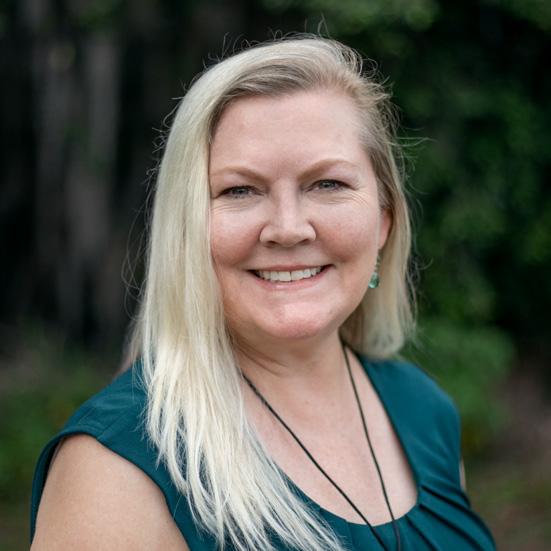
Susan Jennifer “Jenny” McKinnon previously worked at Fidelity National Title where she supported the Counsel Retention Group as a legal assistant. Jenny has been part of the real estate title insurance industry for the past eleven years. She will be supporting the ABE team and will direct those who walk in with questions, process reimbursements, reserve conference rooms, order supplies, and handle mail/packages. Jenny is a Jacksonville, Florida native and recently moved to Melrose, Florida. Apart from the office she enjoys boating, walking, and spending time with family.
Minyeop Kim

Master of Science (M.S)
Bioprocess Engineering
Advisor: Dr. Pratap Pullammanappallil
John Nemenyi
Master of Science (M.S)
Food/Fermentation Engineering
Advisor: Dr. Ana Martin-Ryals
Bewuket Tefera
Master of Science (M.S)
Water Resources
Advisor: Dr. Haimanote Bayabil
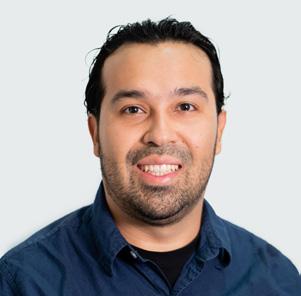
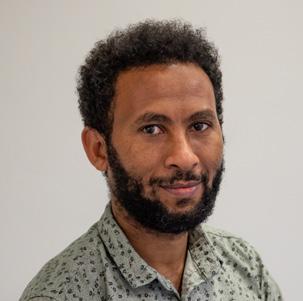
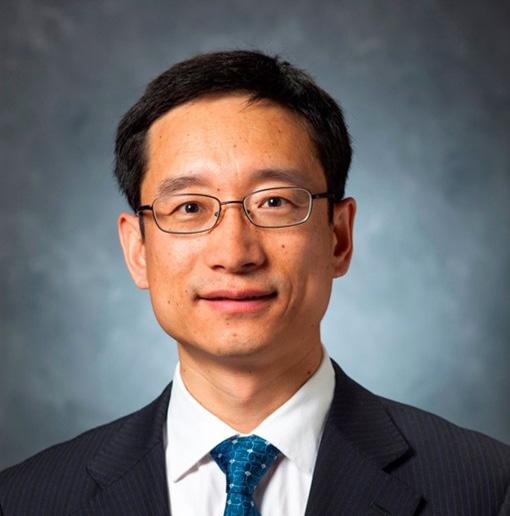
Oscar Castillo
Doctor of Philosophy (Ph.D.)
Crop Modeling
Advisor: Dr. Gerrit Hoogenboom
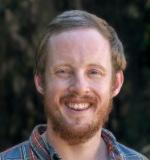
Kim Hafner
Doctor of Philosophy (Ph.D.)
Packaging
Advisor: Dr. Bruce Welt
Jinsheng Huang
Doctor of Philosophy (Ph.D.)
Environmental Nanotechnology
Advisor: Dr. Bin Gao
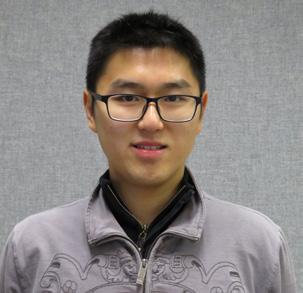
Marcus Beck
Bachelor of Science (B.S.)
Biological Engineering
Sarah Center
Bachelor of Science (B.S.)
Biological Engineering
Daniel Crawford
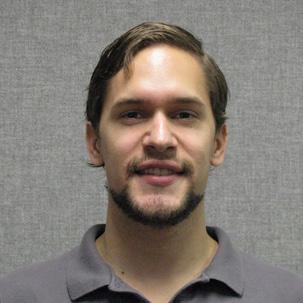
Bachelor of Science (B.S.)
Biological Engineering
Jacob Cutts
Bachelor of Science (B.S.)
Biological Engineering
Dennis Carpenter
Bachelor of Science (B.S.)
Agricultural Operations Management
Wesley Clark
Bachelor of Science (B.S.)
Agricultural Operations Management
Madelon Enneking
Bachelor of Science (B.S.)
Agricultural Operations Management
Sydney Ervin
Bachelor of Science (B.S.)
Agricultural Operations Management
Diana Diaz-Martinez
Bachelor of Science (B.S.)
Biological Engineering
Martha Esposito
Bachelor of Science (B.S.)
Biological Engineering
Garrett Jackson
Bachelor of Science (B.S.)
Biological Engineering
Griffin Lay
Bachelor of Science (B.S.)
Biological Engineering
Nyssa Gunthorp
Bachelor of Science (B.S.)
Agricultural Operations Management
Jozef Heijkoop
Bachelor of Science (B.S.)
Agricultural Operations Management
Noah Mertens
Bachelor of Science (B.S.)
Agricultural Operations Management
Ethan Padrick
Bachelor of Science (B.S.)
Agricultural Operations Management
Emerick Larkin
Doctor of Philosophy (Ph.D.)
Sustainable Space Agriculture
Advisor: Dr. Melanie Correll
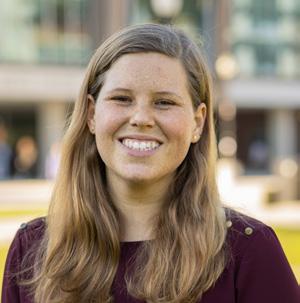
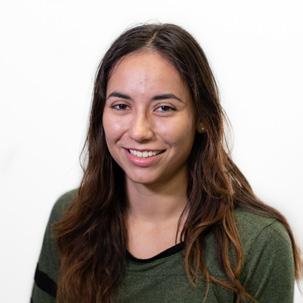
Lory Willard
Doctor of Philosophy (Ph.D.)
Land and Water Resources Engineering
Advisors: Drs. Rafael Muñoz-Carpena and Cheryl Palm
Chloe Morter
Bachelor of Science (B.S.)
Biological Engineering
Marc Pappas
Bachelor of Science (B.S.)
Biological Engineering
Julie Peeling
Bachelor of Science (B.S.)
Biological Engineering
Andrew Priest
Bachelor of Science (B.S.)
Agricultural Operations Management
John Roane
Bachelor of Science (B.S.)
Agricultural Operations Management
Alec Sebring
Bachelor of Science (B.S.)
Agricultural Operations Management
Xintong Zhong
Bachelor of Science (B.S.)
Agricultural Operations Management
The ABE Advisory Board provides guidance on a range of matters and play a vital role in shaping the direction and priorities of the department. Through regular meetings and consultation, the Board helps to ensure that the department remains a leader in the field of agricultural and biological engineering.
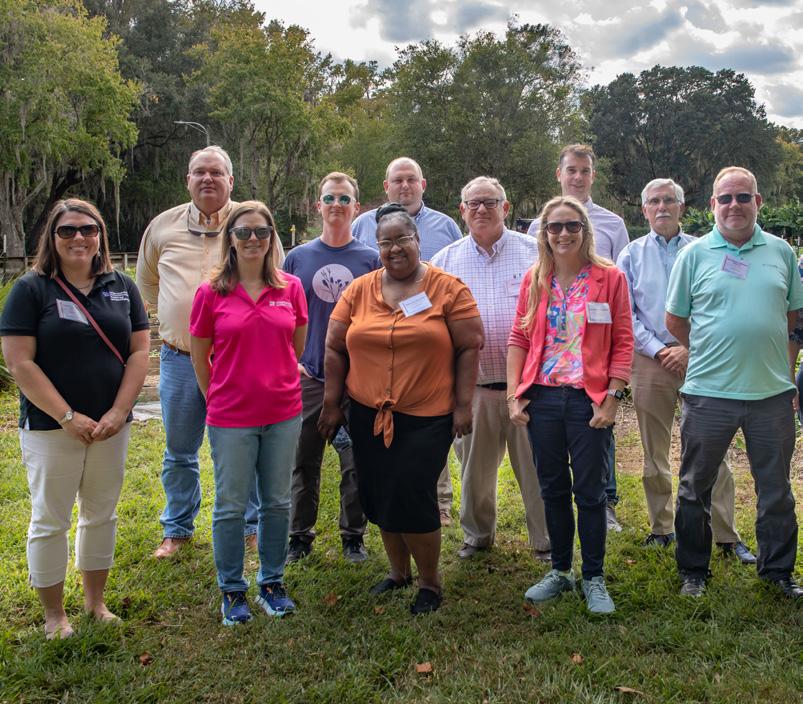
Del Bottcher President
Soil and Water Engineering Technology, Inc.
Joe Collins
Sr. Vice President
Lykes Bros., Inc.
Justin H. Gregory Senior Manager
Jones Edmunds
Hunter R. Merrill
Lead Data Scientist, Environment Modeling Team
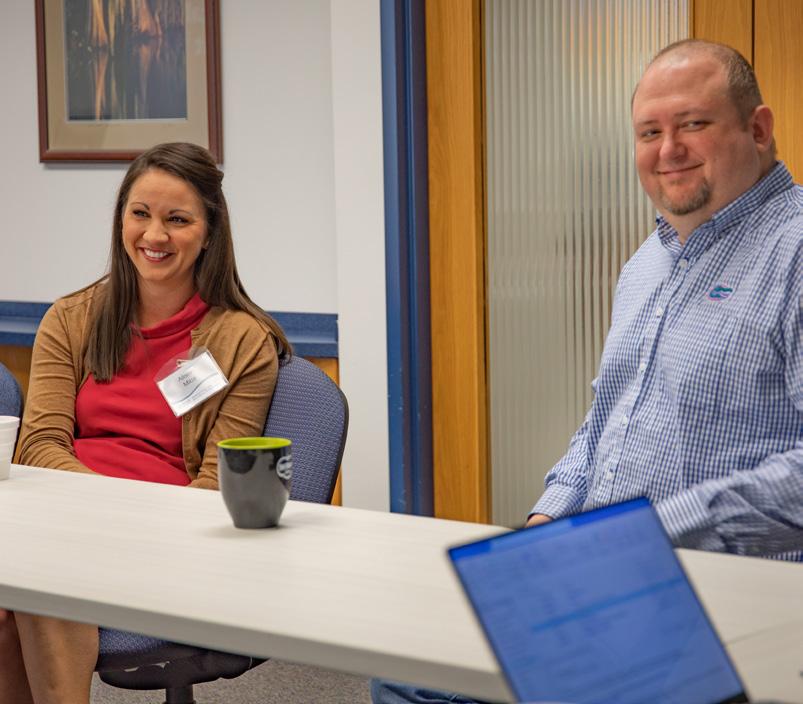
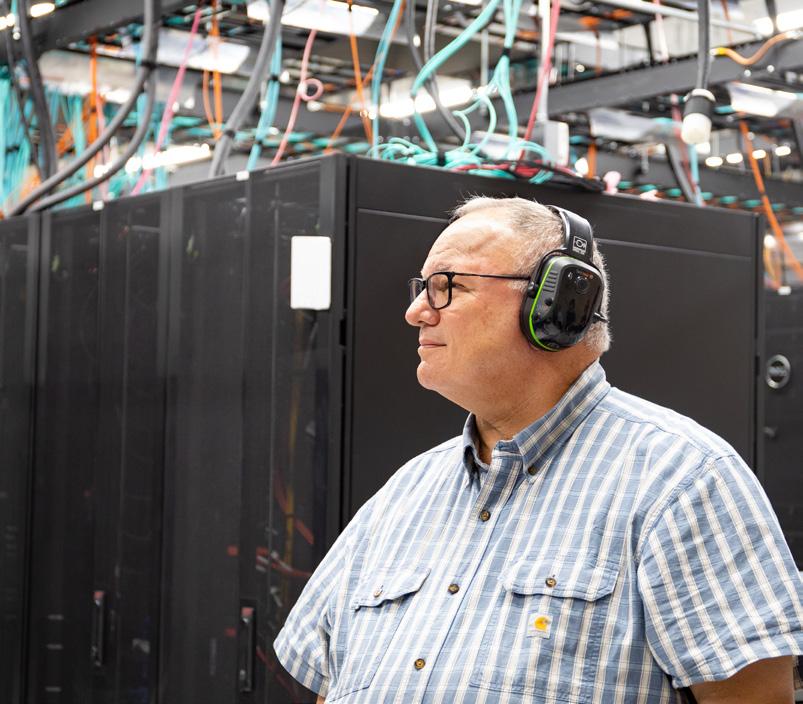
Climate LLC.
Allison Horowitz
Bacardi OC Project Manager
Bacardi
Alicia A. Modenbach Lecturer, Student Services Coordinator
University of Kentucky
Eldon Muller
Worldwide Safety
Walt Disney Parks and Resorts
Stephanie Seawright Chief Operations Officer Central Florida Community Action Agency, Inc.
Anthony Shun Director of Business Development
Malnove Packaging Solutions Inc.
Gary W. Stutte President and CEO SyNRGE, LLC
Cristian Toma
Founder and Chief Science Officer
Kalera Inc.
Amy Wicks Vice President
Kimley-Horn and Associates, Inc.
Evan Shane Williams
Stormwater Engineer
Alachua County Environmental Protection Department
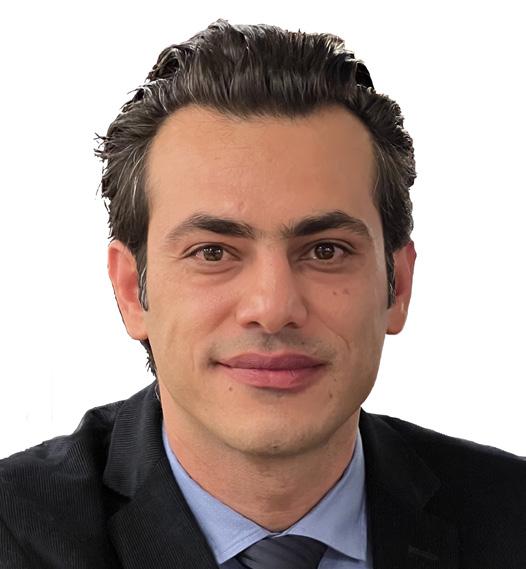
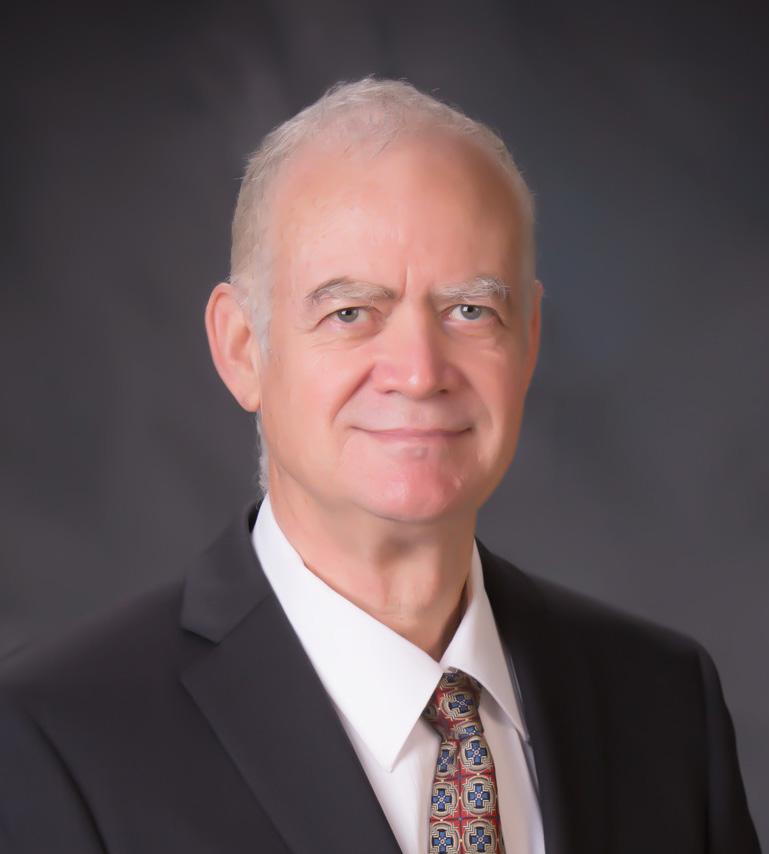
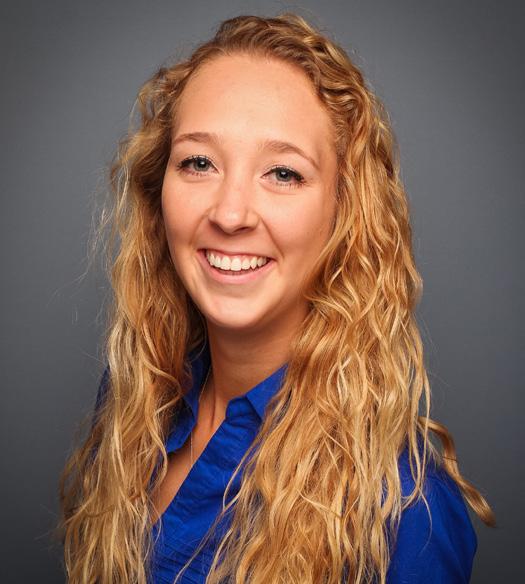
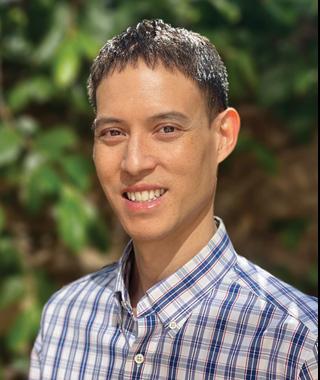
The UF/IFAS Agricultural and Biological Engineering department honors our alumni and friends who work to further enhance our discipline and industry. Scan the QR code to read more about our 2023 Alumni Award Winners.
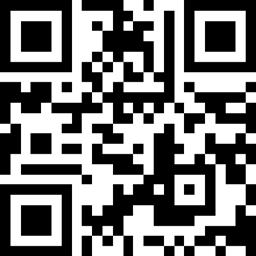
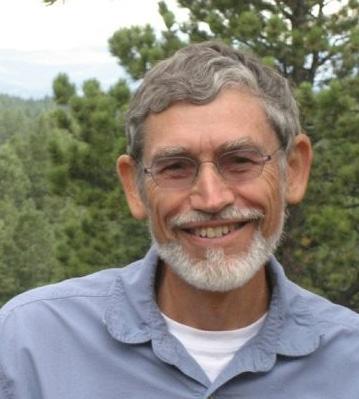
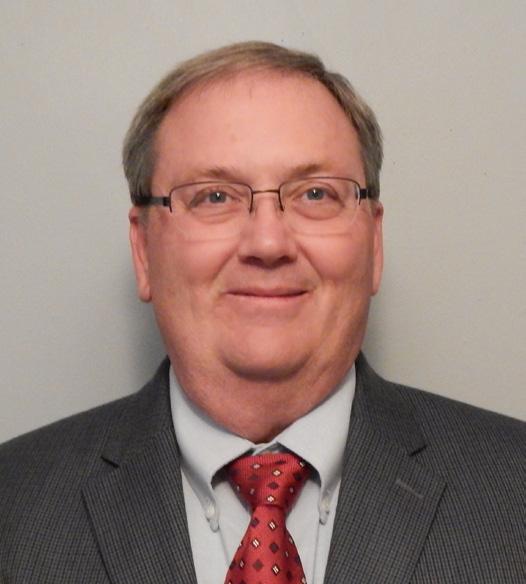
• Ana Martin CALS Early Career Excellence in Teaching Award
• Gerrit Hoogenboom elected into 2023 AAAS Fellow Class
• Cheryl Palm elected into 2023 AAAS Fellow Class
• Michael Dukes 2023 Royce J. Tipton Award for “Work Contributing to Improving Irrigation Efficiency.”
• Ken Stone, ABE Alumni, 2023 UF/ABE Distinguished Alumni Award
• Paulo Younse, ABE Alumni, 2023 UF/ABE Distinguished Alumni Award
• Ken Campbell, Professor Emeritus, 2023 UF/ABE Distinguished Achievement Award
• Fedro Zazueta, Professor Emeritus, 2023 UF/ABE Distinguished Service Award
• Madison Keller, ABE Alumni, 2023 UF/ABE Outstanding Young Alumnus Award
• Alireza Pourreza, ABE Alumni, 2023 UF/ ABE Outstanding Young Alumnus Award
• Gary Stutte, Recognition of Service to the UF/ABE Advisory Board
Student Awards
• Julie Peeling Professional Excellence HWCOE Student Award
• Jinsheng Huang 1st place in the WateReuse Student Presentation Contest
• ASABE Recognition For Outstanding Service
Presented to ASABE Florida Student Branch
• Congliang Zhou Donovan J. Welch Fellowship for his project, Two-Spotted Spider Mite Detection
• Congliang Zhou 2023 Luby Microgrant
• Bibek Acharya McNair Bostick Student Scholarship
• Donald Coon McNair Bostick Student Scholarship
• Giovanni Tonello Diogo Sun Fu “Tony” Shih Scholarship
• Kennedy Belknap John B. Boy/US Sugar in Agricultural Engineering Fund
• Chloe Morter John B. Boy/US Sugar in Agricultural Engineering Fund
• Marc Pappas John B. Boy/US Sugar in Agricultural Engineering Fund
• Mily Gandhi Allen G. Smajstrala Scholarship
• Erin Kallin Allen G. Smajstrala Scholarship
• David Bough Florida Section ASABE Scholarship Fund
• David Bough Florida Section ASABE Scholarship Fund
• Marcus Beck Florida Section ASABE Scholarship Fund
• Martha Esposito Florida Section ASABE Scholarship Fund
• Tyler Herrington Florida Section ASABE Scholarship Fund
• Kendall Schlitt Florida Section ASABE Scholarship Fund
• William Thuesen Florida Section ASABE Scholarship Fund
• Nyssa Gunthorp Bob and Virginia Peart Scholarship
• Sarah Laboda Marlin Eller Memorial MWI Corporation Scholarship
• Jacob Cutts Rush E. Choate Scholarship
LEFT TO RIGHT: 1. YICHENG YANG POSES WITH GATOR DURING ANNUAL GATOR NATION GIVING DAY. 2. (TOP TO BOTTOM) UF/ ABE ASSOCIATE PROFESSOR DR. YIANNIS AMPATZIDIS SPEAKS AT THE 2023 AI IN AG EVENT IN ORLANDO, FLORIDA. 3. EMERITUS FACULTY AND FORMER UF/ABE CHAIR, DR. DOROTA HAMAN, SPEAKS AT THE FIRST CENTENNIAL SEMINAR SERIES. 4.





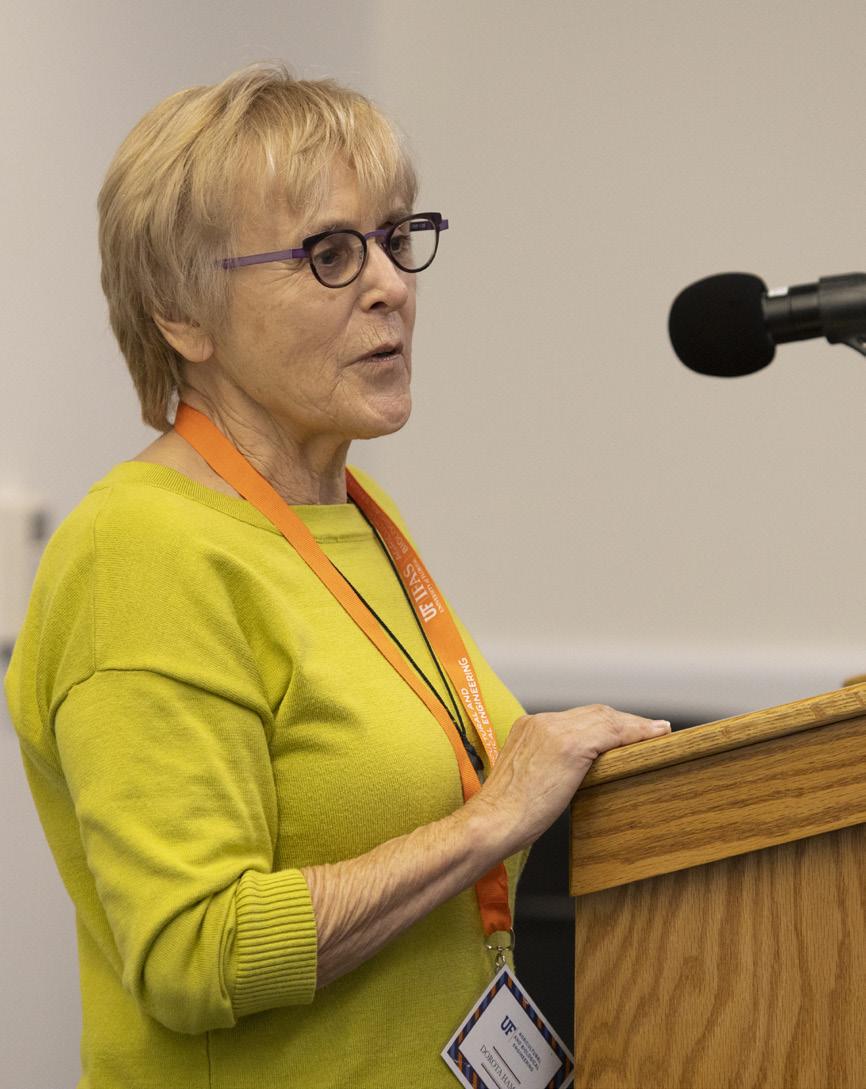
EMERITUS DR. JIM JONES AND CHERYL PORTER CONVERSE WITH STUDENTS AFTER THE FEBRUARY CENTENNIAL SEMINAR. 5. PH.D. STUDENT, LORI WILLARD, SMILES AS SHE PRESENTS HER 1ST PLACE POSTER AT THE UF/ABE POSTER SYMPOSIUM. 6. ASABE STUDENTS ACROSS THE SOUTHEAST GATHER FOR A PHOTO AT THE ANNUAL ASABE RALLY, HOSTED BY UF. 7. BIOLOGICAL ENGINEERING STUDENTS GATHER FOR A PHOTO AT THE 2023 RECOGNITION & AWARDS DINNER. 8. UF/ABE PROFESSOR, DR. TOM BURKS, PRESENTS THE HISTORY OF MECHANIZED CROP PRODUCTION DURING THE APRIL CENTENNIAL SEMINAR. 9. FACULTY, STAFF, AND STUDENTS POSE FOR A PICTURE AT ORDWAY SWISHER FOLLOWING THE MARCH CENTENNIAL SEMINAR.
